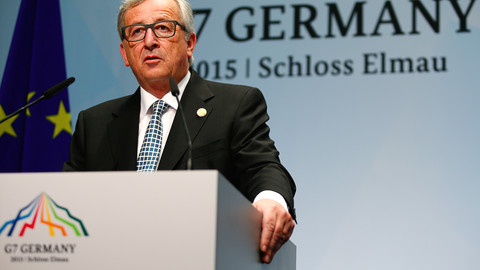Juncker Fiercely Accuses Tsipras Of Lying To Parliament
The president of the European Commission, Jean Claude Juncker, is accusing Tsipras of failing to deliver alternative economic reforms that Tsipras had ‘promised’ Juncker. This ‘promise’ has come from Juncker urging Tsipras to come up with alternative proposals ‘swiftly’ to proceed with negotiations as it is becoming clear that Juncker was beginning to lose patience with Greece.
However, Alexis Tsipras, the Prime Minister of Greece, declared on Friday that the EC’s reforms were ‘absurd’ and were ‘clearly unrealistic demands on Greece’ also adding to the fact that he hoped that the creditors latest offer to unlock bailout funds were a ‘bad negotiating trick’. As it was spoken to parliament in Athens, it allowed Finance Minister Yanis Varoufakis to add that the demands of the reform were ‘an aggressive move designed to terrorise the Greek government… this Greek government cannot be terrorised’.
After Tsipras’ declaration on Friday, Juncker stated that he regarded Tsipras as a friend, however ‘friends have to observe minimal rules’. It was clear that Juncker was not happy with what Tsipras was expressing as Juncker countered Tsipras by saying that he misrepresented the EC’s proposal to the parliament, by making it seem as if the EC had a ‘take-it-or-leave-it’ attitude towards the proposal when, according to Juncker, the EC were willing to negotiate the Greek pensions, something that was not originally in the European Commission’s proposal, which includes increases in tax and cuts in civil servants’ salaries.
Juncker commented that his ‘friendship’ with Tsipras was also a reflection of the growing frustration coming from Greek creditors with the Syriza-led government. The frustration comes from conditions the Syriza-led government laid down for the bailout payments, which the creditors refuse to accept.
Greece firmly rejected the proposals, however they didn’t offer any agreement in return, suggesting this was caused due to the ‘lies’ Tsipras told parliament.
Last week, it was stated by Greece that they have delayed making a €300 million loan payment to the International Money Fund as Greece has agreed to pay one full payment of €1.6 billion at the end of June. By doing this they will be eliminating four payments that were scheduled and agreed between Greece and the International Money Fund and paying it in total at the end of the month.
However, Greece is making its way towards a possible exit from the Euro following the standoff. As their four-month struggle has already been extended, an agreement between the governments needs to be made or another extension for the standoff is required before the 30th June as this is when the European Unions bailout of the Mediterranean nation expires. Greece must secure funds prior to this date in order to avoid defaulting on debts.






